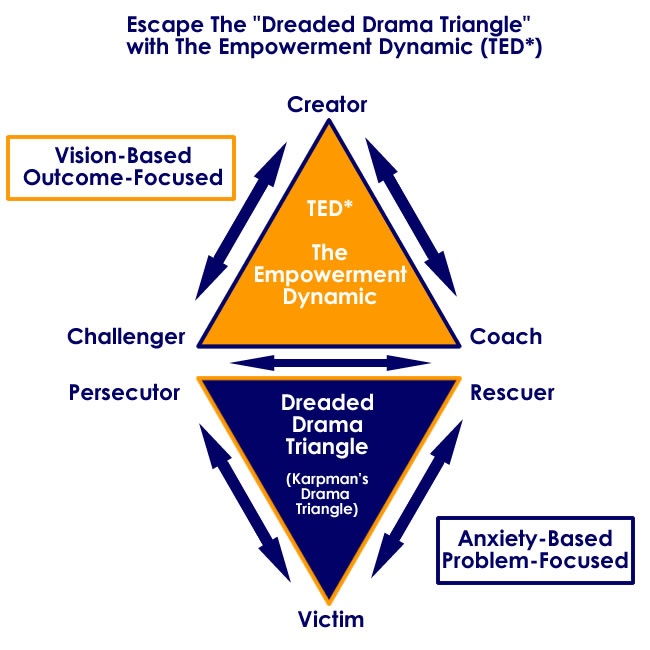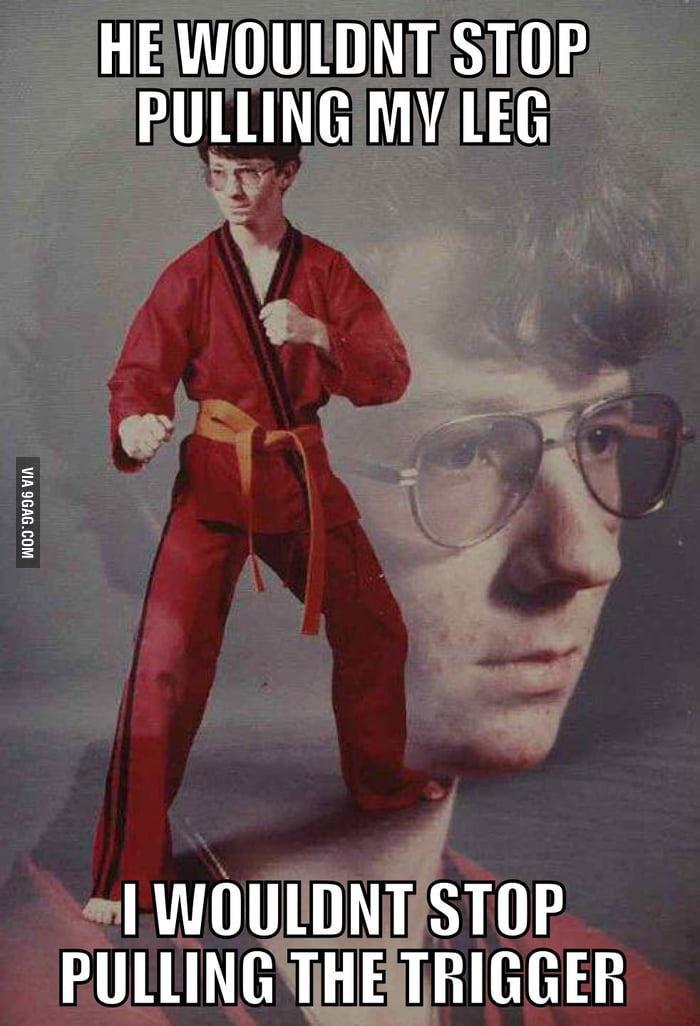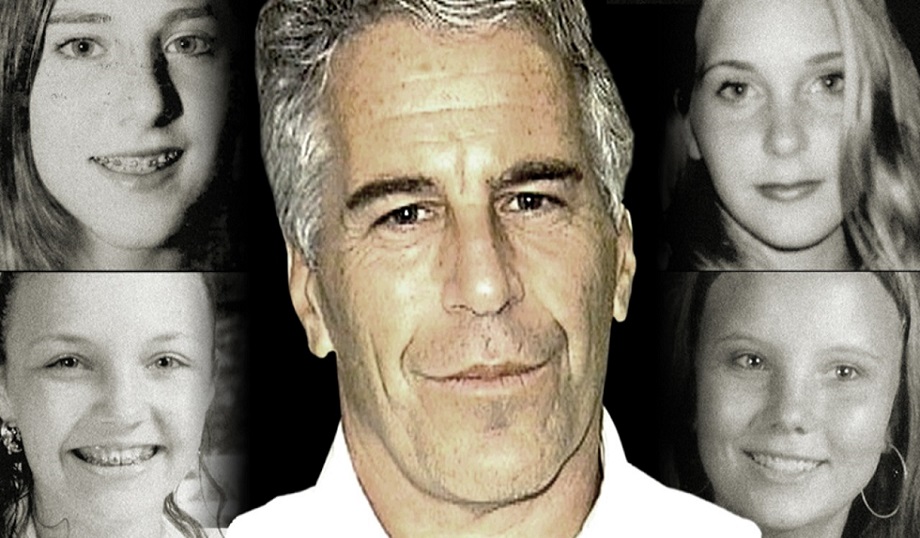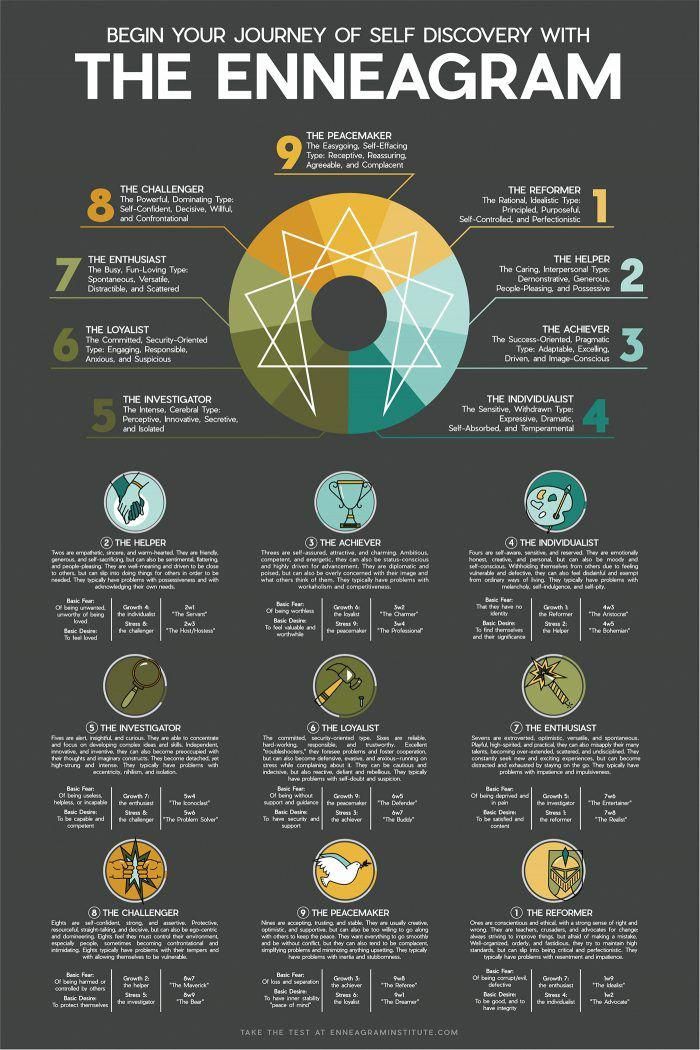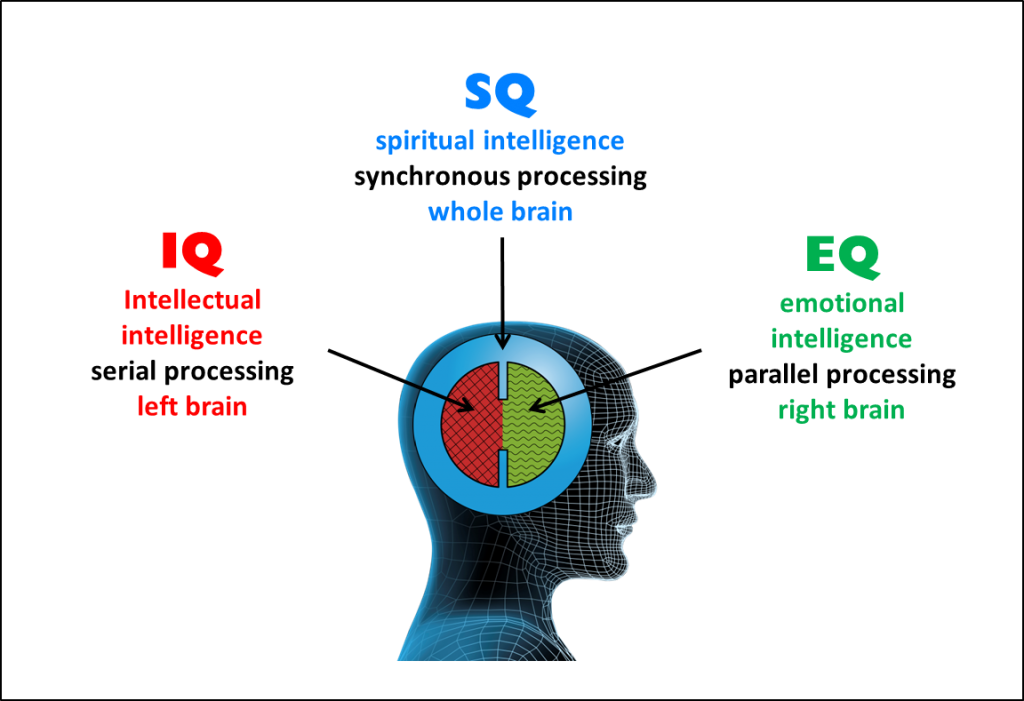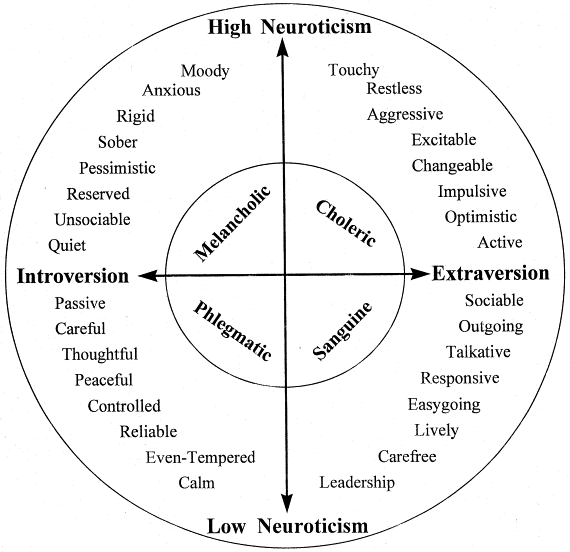Fighting the demons within
How to Overcome Your Demons
When I was younger, I used to have this quiet, menacing voice inside me. I was starved for attention and affection, but every time I started to receive attention or affection from somebody, that voice would quietly urge me to get away. “You’ll be trapped,” it would say. “You’re going to lose your independence.” And suddenly, I’d begin to have irrational ideas about never being able to eat steak again because the girl I liked was vegetarian, or how moving in with some friends meant that I’d be forced to play Scrabble with them every night for the rest of my life.
As a result, I spent most of my twenties being a terribly unreliable (and often selfish) person. I was the guy who said he couldn’t wait to see you and then never showed up. I was the guy who went on three spectacular dates with a woman and then strangely found an endless litany of excuses to not go on a fourth. I was the guy who would just walk out in the middle of a concert, a movie, a party, with no explanation and go somewhere else.
It wasn’t that I didn’t like these people. Actually, it was the opposite—I did like these people—and that’s what terrified me. That’s what woke that inner voice saying, “Let’s get out of here. Let’s find something better. Don’t get stuck.”
It was like this inner demon constantly repelling me from anyone I felt intimate with or close to. But I wanted to feel intimate and close to people, so I just acted like a crazy person for about ten years, trying to get over myself.
Table of Contents
- Our Inner Demons
- Meet My Demon, Carl
- Angels and Demons
- Befriending Your Demons
- Your Demons Aren’t Special
- The Shadow and the Light
We all have demons—parts of ourselves that we don’t like to acknowledge but we see lurking inside us—parts of ourselves that cause us to do irrational and selfish things not out of love for ourselves, but out of fear for ourselves.
But no matter how hard we try to ignore our demons, they’re always there, bubbling up to the surface, seeping out from the lid we try to keep on them.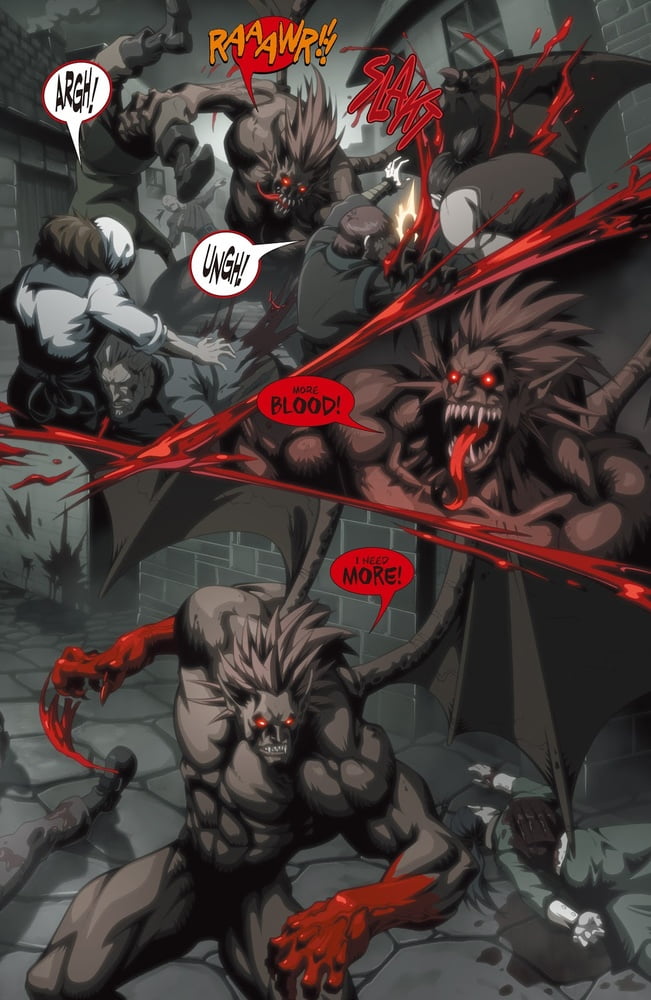 And the harder we try to hold that lid down, the more fucked up our lives become. We get high or drunk to forget our demons. We distract ourselves from our demons with work or competition. We treat others like shit to distort our deep-seated fear that they will eventually treat us like shit.
And the harder we try to hold that lid down, the more fucked up our lives become. We get high or drunk to forget our demons. We distract ourselves from our demons with work or competition. We treat others like shit to distort our deep-seated fear that they will eventually treat us like shit.
Anything to keep the demons at bay…
You have probably done battle with your demons at some point—you’ve fought back the feelings of anger or guilt, you’ve hated yourself for your stupid behavior. You’ve promised yourself that you’ll stop listening to that little voice inside or that you’ll finally put the vodka away.
One of the demons I still struggle with is laziness. While we’re all lazy slobs at least some of the time, my struggle with my own “usefulness” in this world often spirals to a dark and lonely place if I’m not careful.
When I procrastinate, I tend to judge myself pretty harshly, telling myself I’m a no good, lazy sack of shit. My general assumption is that
everyone is productive and kicking ass every day… except me.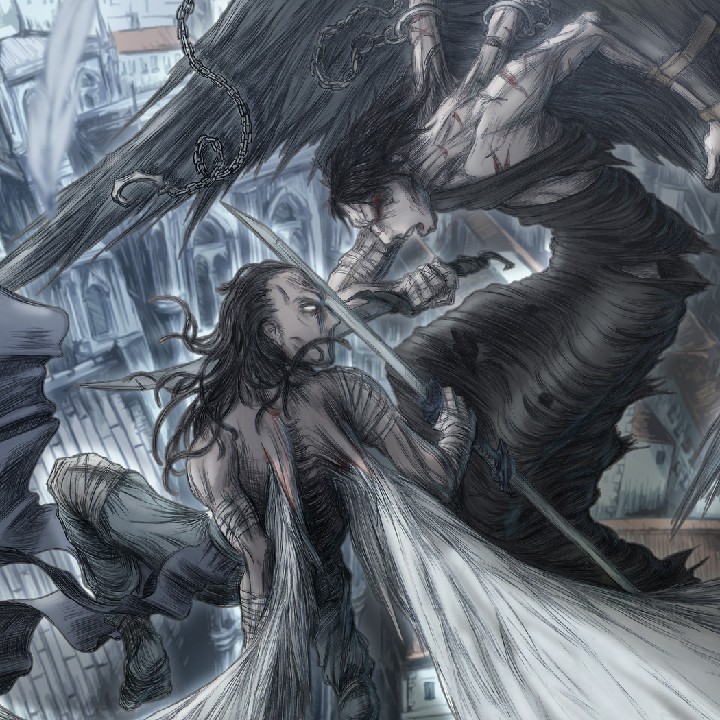 I realize now (after many years) how irrational this belief is. But still, that little voice inside whispers that no one else has a problem staying motivated, therefore I must be some sort of loser.
I realize now (after many years) how irrational this belief is. But still, that little voice inside whispers that no one else has a problem staying motivated, therefore I must be some sort of loser.
Demons start out as a self-judgment: you’re lazy, you’re dirty, you’re stupid, you’re unlovable, etc.
Then we try our hardest to avoid that judgment, to prove it wrong. We clean the garage six times. We work 11-hour days. We win a blue ribbon at the local skating rink. See! I told you I’m cool and likeable! See! Look at me!
But eventually, that avoidance becomes self-destructive. You clean the garage again instead of picking your kids up from school. You work so long that you fall asleep driving home. Your obsession with skating rink blue ribbons destroys your relationship with your partner, with them leaving and screaming, “You never wanted me! You just wanted someone to watch you skate!”
And worse, no matter how much you prove your demon wrong, it doesn’t go away. The laziness demon never stops making me feel lazy. The cleaning demon, one of my wife’s demons, never lets her feel like everything is clean or organized enough. No matter how hard you work, the demon is never satisfied. So the only alternative is to distract yourself from the demon, or worse, to give in.
The laziness demon never stops making me feel lazy. The cleaning demon, one of my wife’s demons, never lets her feel like everything is clean or organized enough. No matter how hard you work, the demon is never satisfied. So the only alternative is to distract yourself from the demon, or worse, to give in.
For me, I spent many years distracting myself with partying. Sex and alcohol, mostly. But some drugs when I was younger. These days, I have a tendency to fall into a lull of playing video games for 3-4 days straight—all the while hating the fact that I’m doing it.
In this way, our demons morph into a kind of self-loathing. You feel powerless and trapped. You can’t win. No matter how much you succeed, you can’t prove the demon wrong. Yet, when you give up and fail, you just prove the demon right.
Suddenly, that vodka sounds pretty good…
…but there’s got to be a better way to overcome your demons.
In her book, Feeding Your Demons, Tsultrim Allione talks about an old Tibetan Buddhist meditation practice where you literally visualize whatever “demon” is haunting you, and then sit down and feed them, the same way you’d feed a guest or a friend at a dinner party.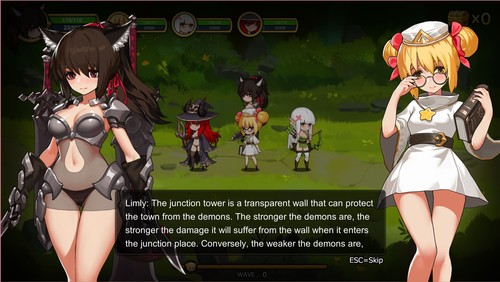 Allione argues that this has a healing effect—that it represents accepting the worst part of ourselves and developing compassion for ourselves.
Allione argues that this has a healing effect—that it represents accepting the worst part of ourselves and developing compassion for ourselves.
Inspired by this idea, I decided to try something I had never really tried before: I would become friends with my demon, my tireless inner-critic. So I started by giving that critic a name: I called him Carl.1
Now, Carl is a total dickface. But that’s just Carl’s thing. Dicks. And faces. But mostly just cruelly judging me for even the faintest evidence of my own failures.
But you know what? I’m not going to hold that against Carl. Not anymore.
Like everyone, Carl needs love and compassion too. So, one night in bed, I closed my eyes and imagined sitting down to dinner with Carl.
“Carl,” I said, “you really make my life hell sometimes, you know that? I constantly feel like I’m not doing enough because you never leave me alone.”
To which Carl, whose voice sounded a lot like Morgan Freeman’s, said, “Mark, you’ve made a demon out of me when I’m really just the other side of your fiery ambition. The only reason I cast doubt on everything you do is because you want to do so much. I don’t make you sit down and play video games for twelve-hour stretches. I merely remind you of what you value when you do. And, if that hurts, so be it.”
The only reason I cast doubt on everything you do is because you want to do so much. I don’t make you sit down and play video games for twelve-hour stretches. I merely remind you of what you value when you do. And, if that hurts, so be it.”
“Goddamn, Carl. You sound just like Morgan Freeman.”
Carl looked at his claws and buffed them with his craggly hand, “I know, I know. I get that a lot.”
“So, what you’re saying is, you’re just here because you reflect the sacrifices of the things I desire?” I asked.
“You could say that,” replied Carl. “Or you could go even further and say that I’m not a reflection of you. I am you.”
I don’t remember much conversation after that. I fell asleep and dreamt that circus acrobats were performing in my college dorm room. But a couple of days later, the profundity started to sink in…
I’ve long argued that the best thing about people is often also the worst thing about them—that’s because our extraordinarily positive traits often produce extraordinarily negative side effects.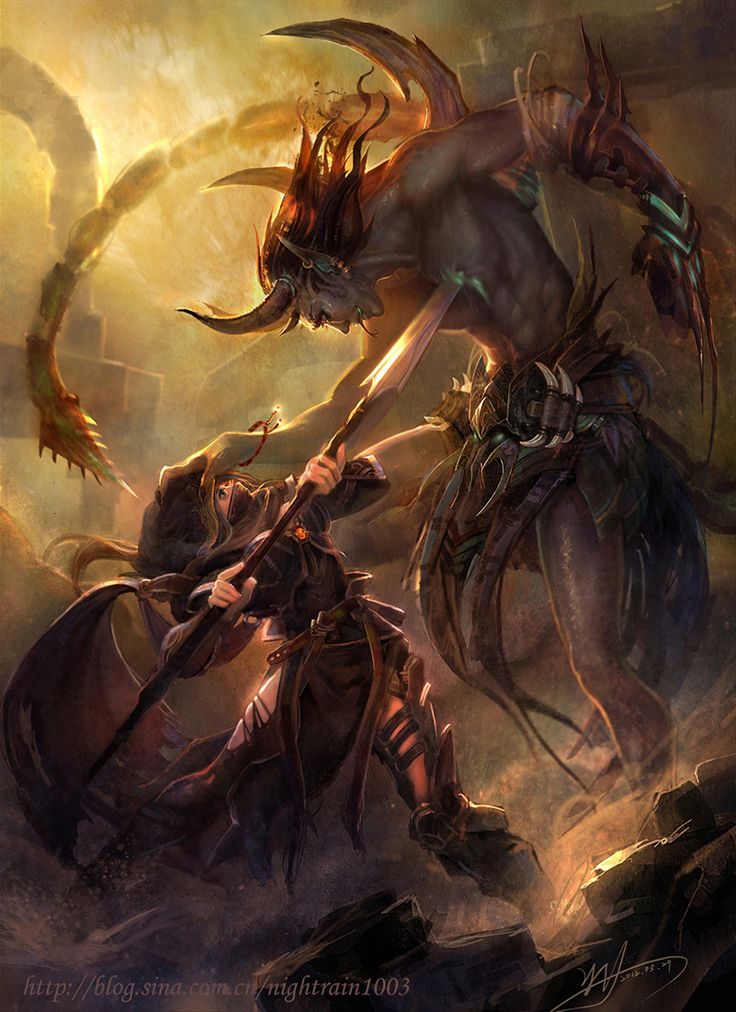 A gift for empathy might make you overly emotional at times. A competitive streak that earns you high achievements might also make you kind of an asshole. A spontaneous creative spirit that gives you artistic talent might make you really, really bad at doing your taxes.2
A gift for empathy might make you overly emotional at times. A competitive streak that earns you high achievements might also make you kind of an asshole. A spontaneous creative spirit that gives you artistic talent might make you really, really bad at doing your taxes.2
So, in my case, my constant guilt around being lazy is just the flip side of having enormous energy and ambitions. My old demon about getting too close to people is also what made me incredibly independent and allowed me to take risks most people wouldn’t (start a business, move abroad, write a book with “Fuck” on the cover—and then another one.)
In this sense, every demon has its associated angel. And our demons are just the other side of our best qualities. To give up one would be to give up both.
As such, we cannot honor the best in ourselves without also honoring what we also fear to be worst about ourselves. Because what we tend to judge as our “worst” is merely the reflection of what we desire as our best.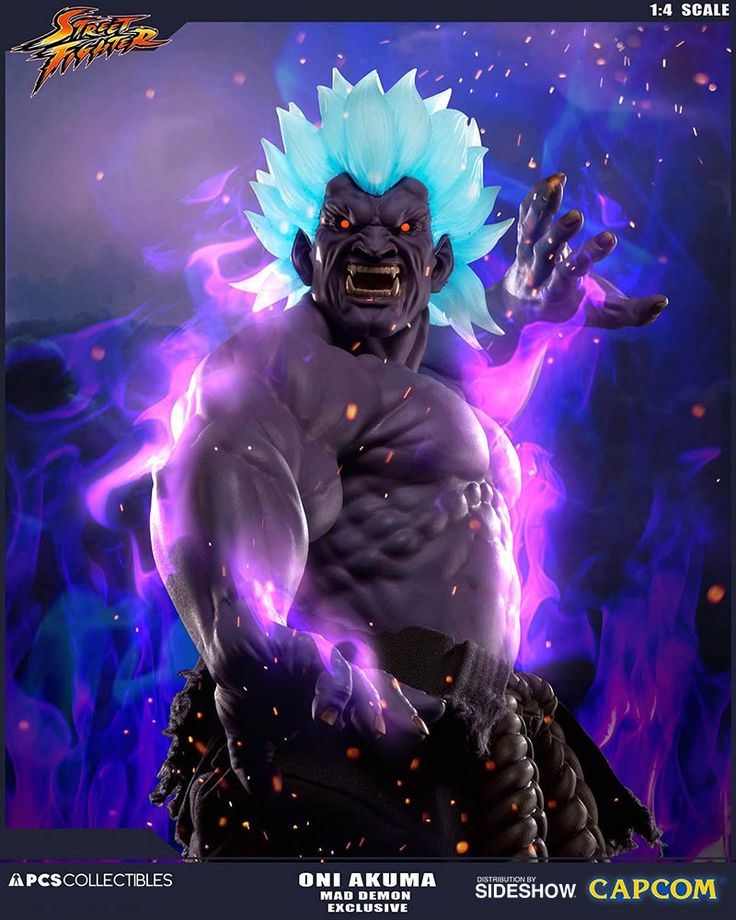
The shadowy parts of our fucked up souls aren’t the problem—the problem is our drive to dissociate ourselves from our fucked up souls in the first place. And the stronger our drive is to dissociate from our demons, the larger our demons become.
Put another way, whatever you choose to value in your life, you are also choosing to experience the failure of that value. Read that shit again, motherfucker. Everything valuable and important in this world has a dark underbelly, a subtle shadow, an associated demon with it. And you can’t buy one without the other. It’s a 2-for-1 deal whether you like it or not.
When we don’t face that demon and befriend it, we complicate our ability to live up to our values. This sucks, because living up to our values is what allows us to develop a sense of identity and life purpose. It’s what keeps us happy and healthy and prevents us from falling into vice and addiction.
Demons and Addiction
Addicts have come to hate the unsavory parts of themselves so much that they go to extremes to avoid them. Their addictive substance or behavior of choice becomes not just a distraction from their demons, it’s how they escape from them entirely—assuming they can find the next high.
Their addictive substance or behavior of choice becomes not just a distraction from their demons, it’s how they escape from them entirely—assuming they can find the next high.
Addiction is a double-whammy of suckage, psychologically speaking, because not only are you avoiding the demon through addiction, but then you feel guilty and hate yourself for all of the damage and destruction that addiction causes.
People often talk about fighting their demons, as if they were the boss of a video game that needed to be defeated to win the game.
But this isn’t a video game. This is real life. Fighting your demons won’t make them go away. Denying their existence, attempting to dissociate from them, only makes them stronger.
Your demons are a part of you, the shadow of all the things you like about yourself, the things that make you you. Picking a fight with or denying who you are is sure to lead you down a path to self-loathing and destruction, a.k.a. no bueno idea.
Instead, you must become friends with your demon.
This doesn’t mean naming it Carl and having late-night conversations as you drift off to Morgan Freeman’s dulcet tones,3 but it does mean recognizing its existence and embracing it as part of yourself.
Your drive for perfectionism that makes you a superstar at work also often makes you disappointed with yourself for not meeting your superhuman expectations. Instead of denying this facet of you, embrace it. Smile at the disappointment demon. Continue kicking ass knowing you will inevitably fail to meet your expectations at some point, and that it will feel a little shitty. And that’s fine.
This process will come more naturally to some than to others. Generally, the more self-aware we are, the easier it will be to find and befriend our demons.
If you’re having trouble, try and sit quietly with your thoughts for a while, maybe grab a piece of paper and jot down what you feel are the best and worst parts of yourself. Simply the act of observing your thoughts and writing down your feelings will give you more clarity.
Simply the act of observing your thoughts and writing down your feelings will give you more clarity.
If you’re feeling bold, ask those closest to you—your family, your friends—what your demons are. It will be painful, but it will be worth it. Keep an open mind. Let those you trust be the mirror that reflects back to you your blind spots. Often you’ll be surprised at how much better they know you than you do yourself.
It’s important to note though: befriending the demon isn’t necessarily agreeing with the demon. And it’s definitely not the same thing as indulging them. An alcoholic isn’t made better by drinking more—that just feeds their addiction. And if you hate yourself in some way, indulging that hate with self-destructive behaviors will only feed into your self-loathing.
No, you befriend your demon by treating them the same way you treat your crazy uncle who believes in conspiracy theories about crop circles: you respect them, even if you don’t agree with them.
“Yes, I’m being lazy today. But that’s okay. I’m allowed to have a couple of lazy days here and there. That doesn’t mean I’m a horrible person, but thanks for bringing it up.”
But that’s okay. I’m allowed to have a couple of lazy days here and there. That doesn’t mean I’m a horrible person, but thanks for bringing it up.”
We all have a bundle of voices offering their perspectives in our heads all the time. A lot of our decisions are made as though they are made by committee. One part of you feels bad for your brother who got arrested for drunk driving and wants to go bail him out of jail. Another part of you is resentful and says “fuck him.” Another part wants to impress your parents. Another part says fuck your parents.
Your demons are just members of that same brain-committee. Let them have their seat. And then, when necessary, out-vote them.
In The Subtle Art of Not Giving a Fuck, I spent much of the book talking about entitlement—the assumption that we deserve special treatment or better results than everyone else.
This drive to dissociate from our demons is a subtle form of entitlement—it’s an assumption or belief that we should be able to live without self-doubt or suffering.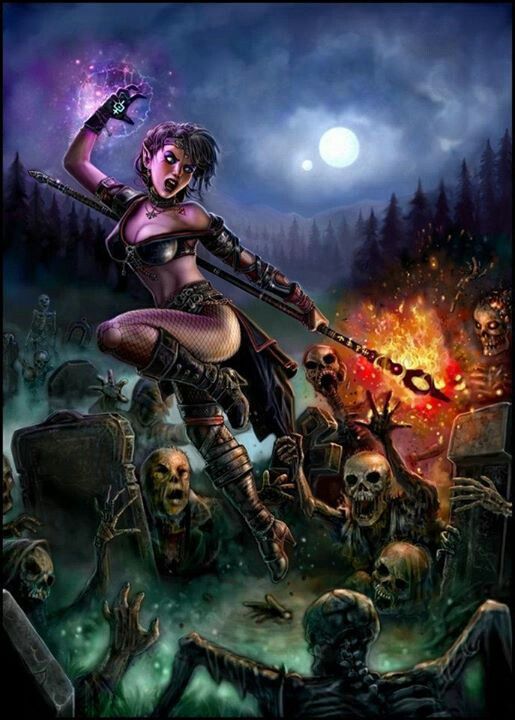 An off-shoot of that assumption is often the belief that our pain is special and unique to us, that no one understands what it’s like to be us or to have our problems.
An off-shoot of that assumption is often the belief that our pain is special and unique to us, that no one understands what it’s like to be us or to have our problems.
But here’s the hard truth that we all need to hear: there’s nothing special about your demons. Carl doesn’t just visit me. He visits millions of people around the world every day. And while this might hurt my ego a little bit (damn you, Carl, I felt so special with you), that realization that I’m not as special as I thought is damn liberating.
If everyone faces demons at some point, then it means we don’t have to be ashamed of them. It just means we’re human.
I can’t tell you how many emails I get from readers saying something like, “Hey Mark, I got a really messed up problem. You’ve probably never heard this one before…”
They then go on to mention a problem that 26 other people emailed me about just that week.
Like a shitty partner, our demons delude us into thinking that they’re ours, that our hearts are the only ones they have infiltrated when really, they’re screwing half the people on the block.
Damn you, demons.
But despite the unsavory analogies, we must still befriend our demons. It’s the only way to prevent them from ruling over our lives.
None of this is new, of course.4 Aside from Buddhists encouraging you to be pen pals with the worst parts of your nature, the famous psychoanalyst Carl Jung wrote prolifically about what he called “the shadow.”5 For Jung, your shadow is all of the parts of yourself that you despise or loathe and therefore hide and avoid. Much like a shadow, it’s this dark image that follows you around, always behind you, always attached to you. It is impossible to run away or lose your shadow because ultimately, your shadow is a representation of you.
It is a beautiful metaphor, because no shadow can exist without a source of light. To rid yourself of your shadow would require you to rid yourself of the light in your life and thus, live in utter darkness.
Jung saw that denying our shadows and everything they contained—the good and the bad—was a source of a great deal of human suffering, and even argued that violence and full-on wars within and between societies were often the sad result of denying our collective shadow.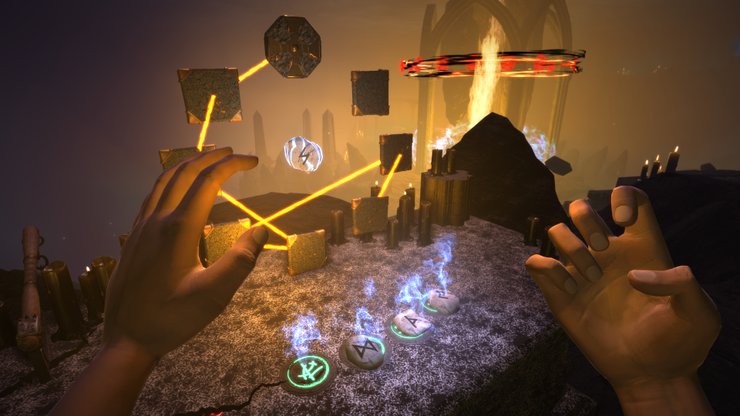 As a culture, we avoid and deny the worst part of ourselves. We wage war on ourselves, threatening and killing our most desperate and vulnerable. We avoid and distract ourselves from our own problems by meddling in the problems of other cultures and societies. It’s all the same shit, just played out on a much grander scale.
As a culture, we avoid and deny the worst part of ourselves. We wage war on ourselves, threatening and killing our most desperate and vulnerable. We avoid and distract ourselves from our own problems by meddling in the problems of other cultures and societies. It’s all the same shit, just played out on a much grander scale.
Jung argued that we must integrate our shadow into ourselves by “turning toward” the darkness. That means embracing the dark parts of ourselves—our worst impulses, our worst shame, our worst fears—and owning them. Accept that they are there. But with that acceptance is a respectful disagreement.
Because you can’t have light without the dark. You can’t truly value something unless you also value the lack of that something. You can’t strive to achieve great success if you aren’t also paranoid about failure. You can’t desire wonderful relationships if you aren’t also terrified of those losses. You can’t have the light without the dark, the angel without the demon.
So be nice to your demons. And in time they will be nice to you.
Footnotes
- I named him Carl after Carl Jung, the famous psychologist of the early- to mid-20th century who thought a lot about this sort of thing. More from him later.↵
- It’s okay, as an artist you probably don’t make any money anyway.↵
- Though you can certainly do that if you want to.↵
- It never is.↵
- If you’re feeling bold and have a lot of time on your hands, you can read Jung’s work on the shadow in Volume 9 of this 20-volume collection of his work.↵
Here Are 5 Ways To Face Your Demons And Free Yourself From The Pain Of The Past | by Tony Fahkry | Mission.org
Facing your demons is a term for dealing with the repressed or unconscious aspects of your personality.
You may have repressed them for a variety of reasons and remain consciously unaware of them. However, much like an iceberg of which ninety percent remains submerged underwater, the unconscious mind is useful to that analogy.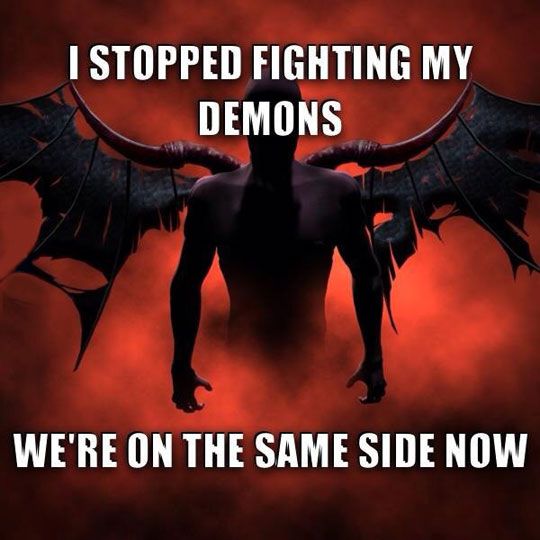 It is responsible for your voluntary and involuntary actions.
It is responsible for your voluntary and involuntary actions.
Through awareness and understanding, you become aware of your unconscious actions, so as not to become a victim to the programmed patterns which accompany them.
“If I got rid of my demons, I’d lose my angels.”―Tennessee Williams
Every person has inner desires. It might have been a childhood dream up until adult hood when you became consumed by a job you no longer enjoyed in order to pay the bills and make ends meets.
Before long you resigned yourself to the fact that you’ll never achieve your lifelong dream. You convinced yourself that dreams are fairy-tales only a select few can achieve. You arrive at this conclusion since you weren’t able to achieve yours. This makes you feel better rather than think of yourself as a failure.
Without the risk of painting a grim picture, I draw the point to your attention since many people experience mid-life crisis as a result of settling. They feel life has deprived them of something precious. They’re at a loss to navigate their way ahead, since they’ve been propelled forward and now find it impossible to turn back.
They feel life has deprived them of something precious. They’re at a loss to navigate their way ahead, since they’ve been propelled forward and now find it impossible to turn back.
Your demons which represent your fears, insecurities, doubts or negative beliefs are the source of suffering. To achieve your desires, it is imperative to break through them to experience the greatness you deserve.
Brendon Burchard writes in The Motivation Manifesto: “Our internal demons poison us with worry and fear whenever we might be vulnerable, stunting our growth and vitality. Our destiny is decided by how well we know our demons of Doubt and Delay, how well we defend against them, and how many battles we win against them each day of our lives.”
Even though you undertake the process of self-examination, there are no guarantees life will reward you. There are no promises or assurances in life. Yet seemingly, you’re in the ideal position to achieve your dreams or goals when you face your demons.
“Confront the dark parts of yourself, and work to banish them with illumination and forgiveness. Your willingness to wrestle with your demons will cause your angels to sing. Use the pain as fuel, as a reminder of your strength.” — August Wilson
When following your path, the past may come back to revisit you. It does so to remind you of the neglected aspects of your life essential to your personal growth. If you overlooked a belief or emotion, it lays dormant at the unconscious level without your awareness.
Unexpectedly it serves as a reminder that you have unfinished business to attend to. You never know when your demons show up, though I can tell you they normally rear they’re ugly head when you’re emotionally vulnerable.
If something in your life is the cause of your unhappiness, attend to it by making peace with it. Find out what the belief or emotion wants you to understand. I speak from experience, having undertaken the process years ago.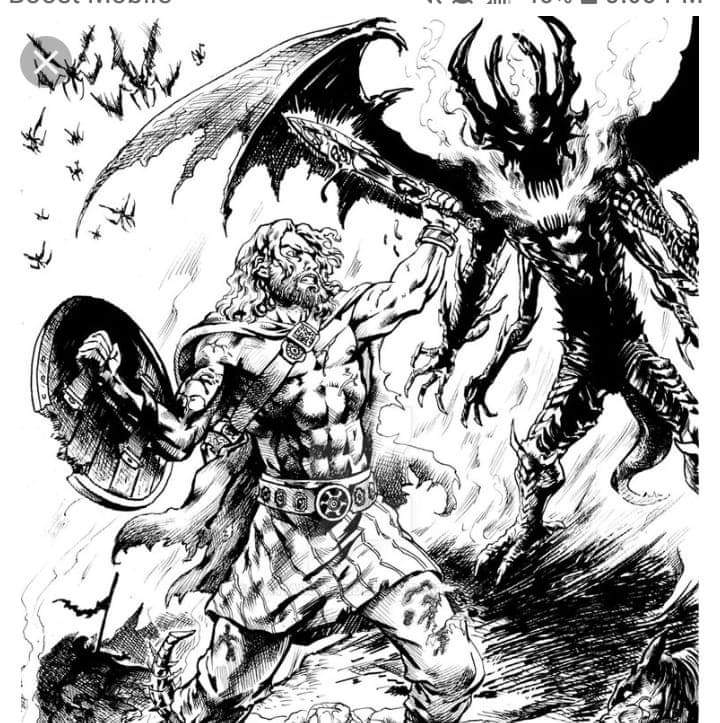 I became aware of emotions which I thought I attended to. Unknowingly they remerged when other related matters became apparent.
I became aware of emotions which I thought I attended to. Unknowingly they remerged when other related matters became apparent.
Instead of putting a lid on them this time, I addressed them in order to uncover the lesson behind them. Once addressed, they revealed an empowering aspect of my personality which I failed to recognise at the time.
“Every day we have plenty of opportunities to get angry, stressed or offended. But what you’re doing when you indulge these negative emotions is giving something outside yourself power over your happiness. You can choose to not let little things upset you.” — Joel Osteen
As mentioned in the last paragraph above when you face your demons, they have the power to transform energy into something greater. They appear as a negative state, since you suppressed them instead of allowing expression through you.
Imagine a friend who calls you regularly, yet you never return their call. In due course the friend gets angry since they’re at a loss to know why you haven’t returned their call.
While this analogy serves as simple metaphor, it highlights how your beliefs and emotions have the power to transform energy if left unchecked. When you attend to them, the emotion reveals the lesson essential to your personal development.
As I mention in the point title, they transform into joy and bliss when you make peace with them. The opposite state is to bury them deeper. Most people take the easy route continuing to repress their emotions until it’s too late. Don’t become that person.
“Don’t fight your demons. Your demons are here to teach you lessons. Sit down with your demons and have a drink and a chat and learn their names and talk about the burns on their fingers and scratches on their ankles. Some of them are very nice.” — Charles Bukowski
The important feature of self-examination is the willingness to address the repressed emotions or beliefs. Without the desire to clean out the closet so to speak, you remain victim to the emotion.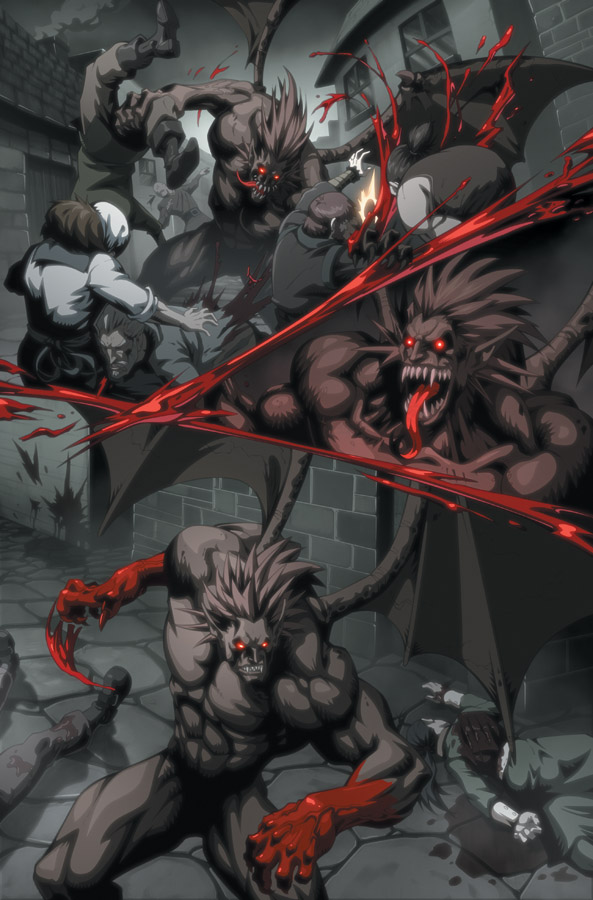 It haunts you until it grows bigger and powerful in magnitude.
It haunts you until it grows bigger and powerful in magnitude.
Give yourself permission to deal with the source of your unhappiness. Even if you don’t know how, it’s better than living in fear of life collapsing beneath you. I’ve witness people overcome with an intensity of buried emotions, it ruined their life. They fell victim to the ensuing emotions — which eventually overpowered them.
Consider the advice by meditation master and author Orgyen Chowang who explains in Our Pristine Mind: A Practical Guide to Unconditional Happiness: “Most people’s problems spring from their own thoughts. Their thoughts, their mental events, create unhappiness, disturbance, and chaos in their relationships and in other areas of their lives. That’s why thoughts are the real demons, because they are the cause of suffering, chaos, separation, and conflict in so many areas of our lives.”
You’ll know when you’re ready to examine your concealed emotions. Your readiness will herald overcoming your buried past.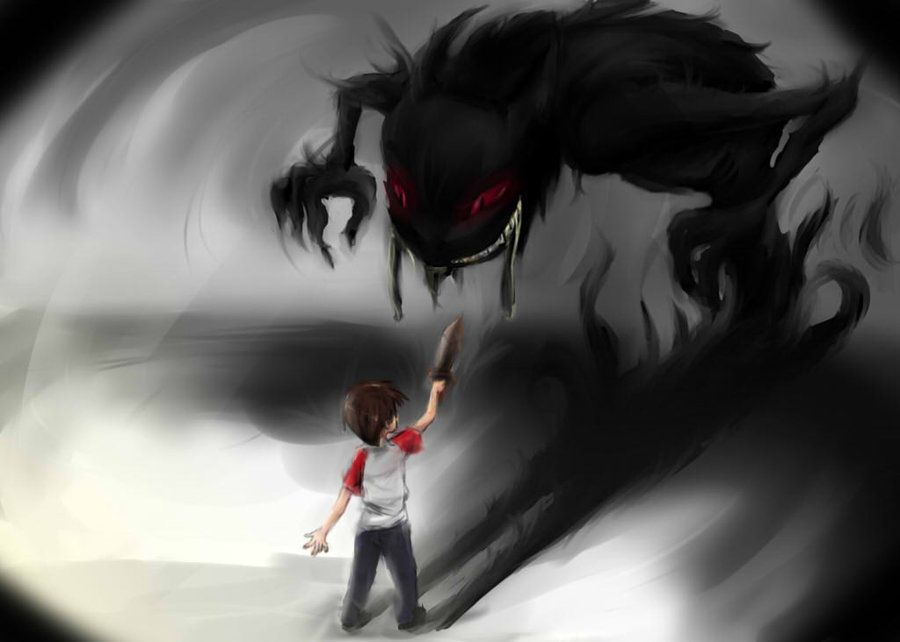 While it may seem frightening at first; it pails into insignificance to the havoc wreaked if left unchecked. Be kind and patient with yourself during this process. You will experience a spectrum of emotions which bring you closer toward unveiling your authentic self.
While it may seem frightening at first; it pails into insignificance to the havoc wreaked if left unchecked. Be kind and patient with yourself during this process. You will experience a spectrum of emotions which bring you closer toward unveiling your authentic self.
“Our demons are our own limitations, which shut us off from the realization of the ubiquity of the spirit . . . each of these demons is conquered in a vision quest.” — Joseph Campbell
The metaphor of allowing your light to shine on your demons signifies the essence and spirit of your true nature. Through spiritual work you discover there is more to you than a body and a mind.
You discover yourself as an unbound being with unlimited potential. Your potential becomes apparent when your demons are no longer the source of your pain. Like a prisoner held captive in a cell, your demons have the potential to generate the same effect.
Allowing your light to shine on your demons invites you to go within to find that source of bright energy.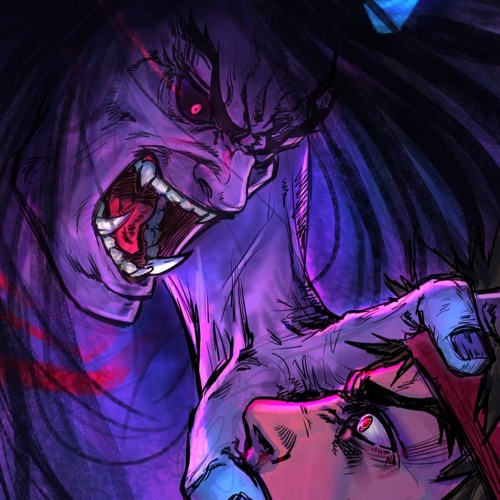 Personally, I see it as a small white star within when meditating. When I give it energy, the light grows brighter filling my entire body. In that instance, I am the source of pure love and light. I recognise this quality as it feels familiar. It is kind, patient and non-judgemental. It doesn’t ask anything of me — yet I am drawn to it.
Personally, I see it as a small white star within when meditating. When I give it energy, the light grows brighter filling my entire body. In that instance, I am the source of pure love and light. I recognise this quality as it feels familiar. It is kind, patient and non-judgemental. It doesn’t ask anything of me — yet I am drawn to it.
You too have this source of energy within you. By going into regular silence through meditation or being alone in nature, you become familiar with it. Ultimately you unite with it so that others become aware of your light.
Make a decision to face your demons if you seek to liberate yourself from an imprisoned past. Ask for guidance from those you trust unsure on where to begin. Invite loved ones to help you realise aspects of your personality you wish to work through.
Be gentle on yourself as you undertake this process. Don’t pass judgement or criticism on what is — merely observe through awareness. In doing so you not only liberate yourself from that past, you create a porthole into an unlimited future.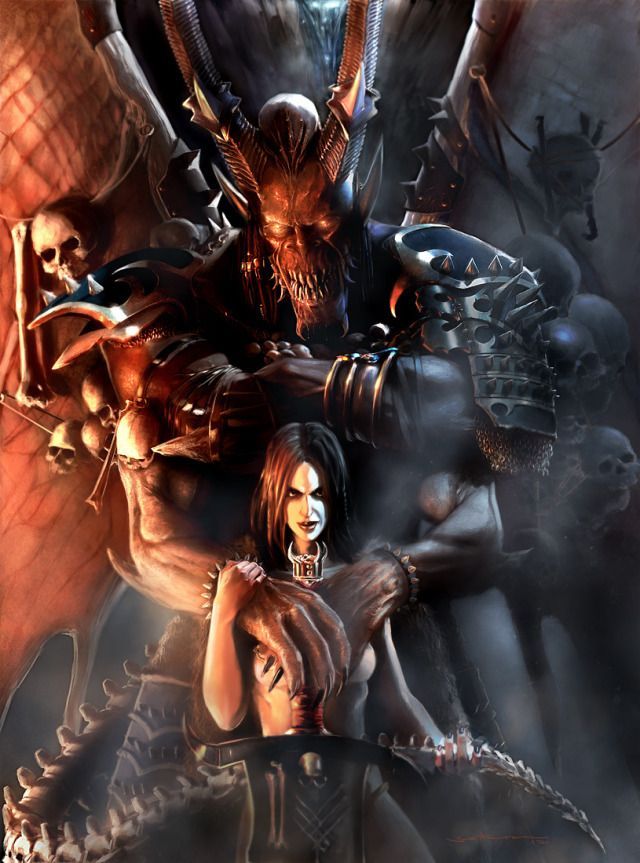
To live a remarkable life, it is vital you take consistent action in spite of your fears and doubts. Download your FREE copy of my comprehensive eBook titled: NAVIGATE LIFE and embark upon your journey of greatness today!
If you enjoyed this story, please click the 👏 button and share to help others find it! Feel free to leave a comment below.
The Mission publishes stories, videos, and podcasts that make smart people smarter. You can subscribe to get them here.
What the struggle with internal demons looks like. Video Platon Film
How it looks like the fight against internal demons. Video Platon Film | RBC StyleTV channel
Newspaper
Pro
Investments
RBC+
New economy
Trends
Real estate
Sport
Style
National projects
City
Crypto
Debating Club
Research
Credit ratings
Franchises
Conferences
Special projects St.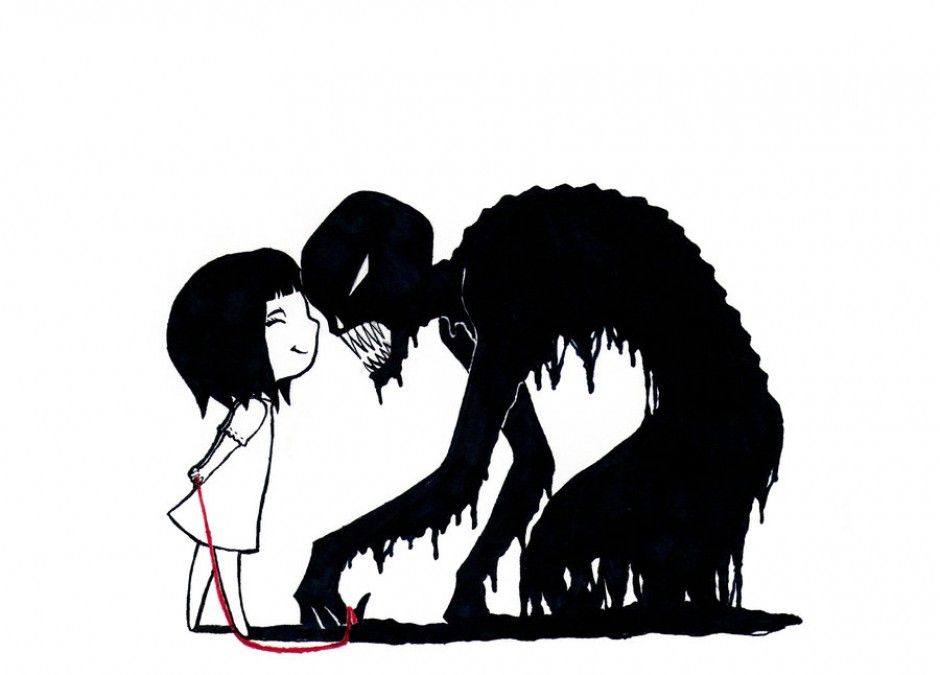 Petersburg
Petersburg
Conferences St. Petersburg
Special projects
Checking counterparties
RBC Library
Podcasts
ESG index
Politics
Economy
Business
Technology and media
Finance
RBC CompanyRBC Life
Impression What does it look like to fight your inner demons? Video Platon Film
Impression What does it look like to fight your inner demons? Video Platon Film
Advertising on RBC www. adv.rbc.ru
adv.rbc.ru
Advertising on RBC www.adv.rbc.ru
Advertising on RBC www.adv.rbc.ru
Impressions
© press service
Author RBC Style
03 February 2020
Platon Yurich's original project, dedicated to internal struggle, intertwines dance, music and color.
The heartfelt video was created and filmed by director Platon Yurich and director of photography Dmitry Smirnov. The main characters were choreographers Anastasia Vyadro and Maxim Nesterovich.
“Each of us has several personalities — from accommodating to very aggressive ones, and we ourselves are a set of just such personal “shards,” explains Platon Yurich, co-founder of the Platon Film studio. “And we all strive for harmony between them, so that none of the personalities prevails over the other.”
Watch the video to find out what happens when one of them breaks free.
Feed Your Demons: Iron Man's Confession
December 2, 2015Sports and Fitness
There are a lot of psychological constraints in our heads, which, according to nature's plan, should stop us in time so that we avoid excessive overexertion and, which is good, do not tire ourselves out. But for “iron people” for some reason they do not work like normal ones. What is going on in the head of a person who overcomes the Ironman distance for the first time? That's right: the struggle of perseverance and common sense.
Share
0 Feed your demons. Press the accelerator pedal to the floor, kiss the cheekbones of desired women until it hurts, get tattoos, beat glasses and faces of boors, sing drunk songs on the streets, jump with a parachute and smile at the children in neighboring cars through the car window. Feed your demons, because your demons are you. You are real, not pasteurized, not refined, not distilled and not filtered by moral principles, family values, public opinion, paternal censure. Feed them, otherwise they will eat themselves, and there will be only a wrapper of what a person is. The epidermal shell of a personality, inflated with complexes, not feelings, unfulfilled desires, not emotions, unrealizable fantasies instead of self-confidence. Feed them and do not wait until they themselves, without your knowledge and desire, at one moment break out. They will tear your soul apart and, flashing brightly from an excess of oxygen, they will burn forever or take you to the very bottom, where you will become the eternal executor of your vices, and not the director of your adventures. Feed your demons and don't be ashamed or afraid of them. Let others fear them, those whose demons are long dead. Film "Mr. Nobody"
Feed your demons, because your demons are you. You are real, not pasteurized, not refined, not distilled and not filtered by moral principles, family values, public opinion, paternal censure. Feed them, otherwise they will eat themselves, and there will be only a wrapper of what a person is. The epidermal shell of a personality, inflated with complexes, not feelings, unfulfilled desires, not emotions, unrealizable fantasies instead of self-confidence. Feed them and do not wait until they themselves, without your knowledge and desire, at one moment break out. They will tear your soul apart and, flashing brightly from an excess of oxygen, they will burn forever or take you to the very bottom, where you will become the eternal executor of your vices, and not the director of your adventures. Feed your demons and don't be ashamed or afraid of them. Let others fear them, those whose demons are long dead. Film "Mr. Nobody"
Two years ago I read this somewhere on the Internet and accidentally found out about the existence of triathlon.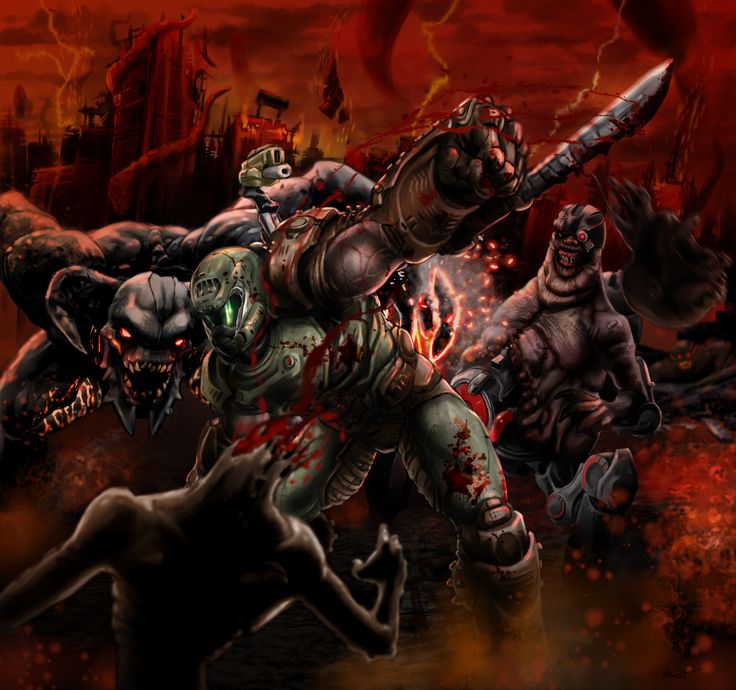 Two years ago I didn't know how to swim, didn't ride a bike, and seasonally ran from time to time, mostly in the spring, until I got bored. Two years ago I was a normal person...
Two years ago I didn't know how to swim, didn't ride a bike, and seasonally ran from time to time, mostly in the spring, until I got bored. Two years ago I was a normal person...
And now it's the tenth hour of the race. During this time, I managed to run about 20 km, and before that, ride a bike for 180 km and swim almost 4 km even earlier. And, oddly enough, I can still move and continue to do so. Who am I? What am I doing here? Who are all these people and why are they so exhausted? Every now and then a strange mantra sounds in my head: “I am your strength. I am your will. We are of the same blood, you and I.
Who am I talking to? Oh yes, because two years ago I decided to feed my Demon and become "iron". Well, we should finish what we started and fix the result. Hard. It's incredibly hard, and you don't want anything anymore. Just a glass of ice cream. How do professionals manage to cover this distance in 8 hours? Abnormal.
Someone is really bad: a hunched figure, standing on all fours on the side of the road, bashfully hides his face.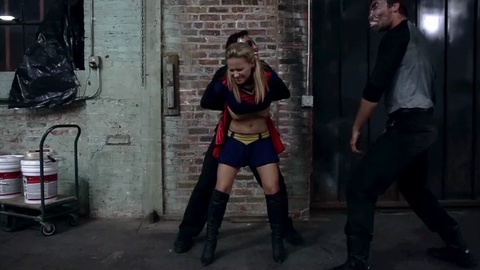 He is sick - this is his Demon breaking out. Just as stubborn as mine. I run up, hug, slap on the shoulder: “Come on, guy, there is not much left. Get up, let's try to do it together!" Colored rubber bands on the hands (or rather, their absence), like stars on military uniforms, indicate that the guy is only on the first lap. Poor fellow. He gets up, thanks and goes on foot. Shows me with gestures that he is already better and I should not bother with him. I continue on my way, doing my best to keep up the pace, but not overdo it so I don't end up on the sidelines just like him.
He is sick - this is his Demon breaking out. Just as stubborn as mine. I run up, hug, slap on the shoulder: “Come on, guy, there is not much left. Get up, let's try to do it together!" Colored rubber bands on the hands (or rather, their absence), like stars on military uniforms, indicate that the guy is only on the first lap. Poor fellow. He gets up, thanks and goes on foot. Shows me with gestures that he is already better and I should not bother with him. I continue on my way, doing my best to keep up the pace, but not overdo it so I don't end up on the sidelines just like him.
Here comes the first spasm. As always, unexpectedly, at the wrong time and very painful. I stop, grab my thigh with my hands and scream so that the fans who are nearby and watching me at this moment involuntarily depict pain on their faces and scream with me. Yes, so naturally and sincerely that I already want to help them, and not vice versa. We laughed, exchanged a few words in different languages, shook hands and sent me on.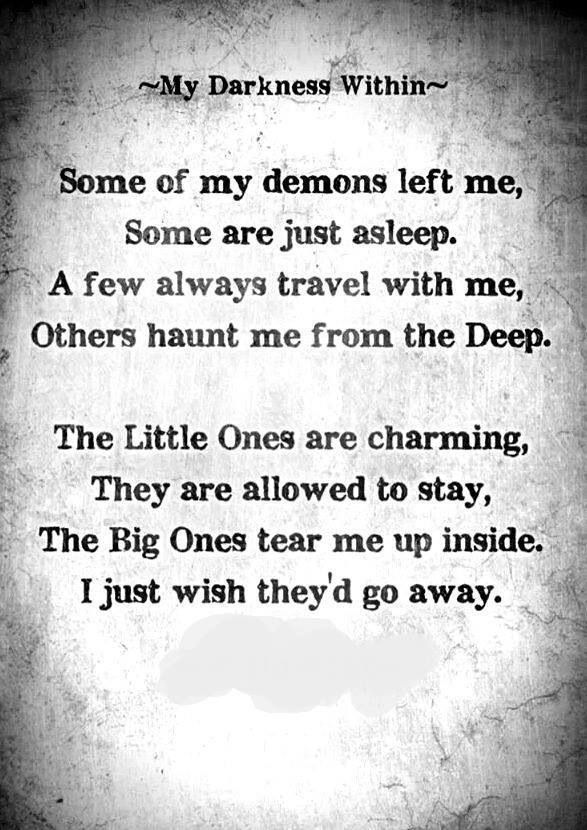 After the fifth cramp, I learned to fight them on the go - you just need to shout some nonsense like “MASSARAKSH! GIVE MY LEG!".
After the fifth cramp, I learned to fight them on the go - you just need to shout some nonsense like “MASSARAKSH! GIVE MY LEG!".
Coca Cola. Cold. The drink of the gods. But not all, but just as crazy as we are. A liter bottle of this balm in the hands of his wife is generally priceless. Please continue to keep your unique formula a secret from the world. Especially from the Chinese. Otherwise, in the future there will be nothing to save people who deliberately drive and torture themselves with Ironman races. What a stupid word they came up with… Ironman…
“How are you?” - "Badly. I'm running." “Would you like to stop?” “Probably yes. Another 14 km, and I’ll stop ... ”And I’m leaving for the third, last round of the marathon. She didn't doubt the answer. She believes in me. How can I back out now?
Last turn. There was just the farthest point of the running stage from the finish arch. Now home. Now there is no way to drop everything and turn around, because you still have to get to the finish line on your own two feet.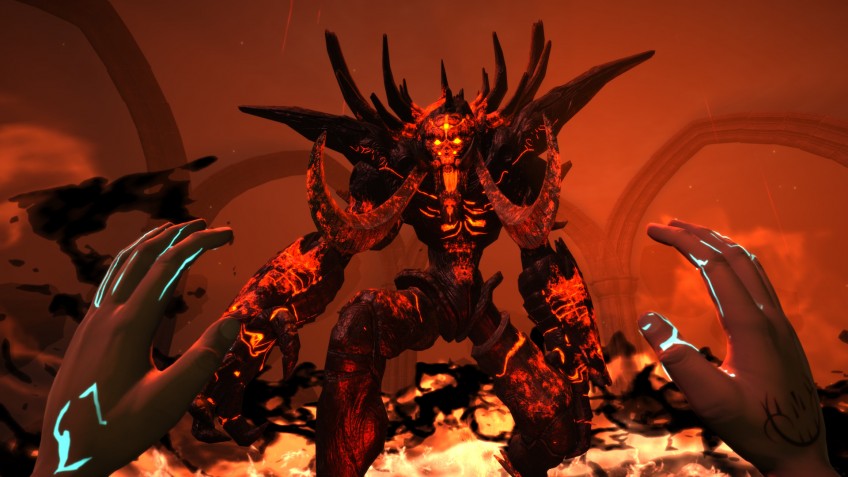 Or four - that's how it goes. It is good that this point of no return has already been passed. Like a mountain from the shoulders. Another 7 km. Now the main thing is to finish beautifully.
Or four - that's how it goes. It is good that this point of no return has already been passed. Like a mountain from the shoulders. Another 7 km. Now the main thing is to finish beautifully.
“I am your strength. I am your will. We are of the same blood, you and I. From this mantra no longer breathes hopelessness. It blows with real strength, will and confidence that everything was not in vain. I see that I don’t fit into the calculated 12 hours, and to hell with them - rather ...
1 km to the finish line. Holland, you are beautiful! And the Dutch are the nicest people on this planet. Thank you for tons of water poured on our heads, for music, dances, attempts to read and pronounce a name unfamiliar to your language and culture, and sincere joy when you succeeded. You are incredible fans!
It's euphoria, but not from the grass, but because the 226 km race is over. Because two years of training, hard work, 250 km swimming, 4,000 km cycling and 1,500 km running are behind us.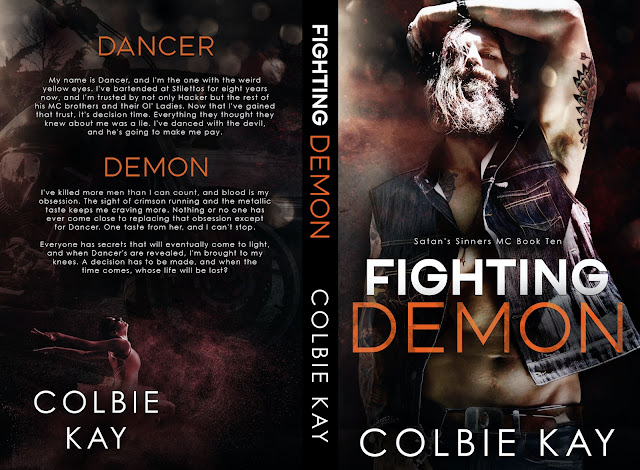 Because now I don’t have to get up at six in the morning and go to the pool and I can finally sleep. Because the dream once turned into a goal, and here I am, in Holland, and now I will achieve it. Be patient a little more. Here it is, the final arch.
Because now I don’t have to get up at six in the morning and go to the pool and I can finally sleep. Because the dream once turned into a goal, and here I am, in Holland, and now I will achieve it. Be patient a little more. Here it is, the final arch.
Someone is trying to bypass me, but somewhere inside, a red light comes on just in time: “Do not give up the finish!” And I don't give up. With the last of my strength, I accelerate and do not give up. He's mine. And the words:
KORNII KORNIIENKO, YOU ARE AN IRONMAN!
And, of course, thanks for the medal. Kids will be proud of their crazy folder. And while they are still small, I myself will savor this victory wherever possible. Where appropriate, of course. And where it is not very appropriate too, because I am a triathlete! And to hell with ice cream! Give me a bucket of beer now - I deserve it today.
It all looks prettier on YouTube, everyone smiles there, but who will stop? Or do you have a job from Monday to Friday from 9:00 to 18:00, family, children, a dog, a loan, excess weight, lack of experience, and it’s generally not clear which way to approach and where to start? Well, then, of course.


